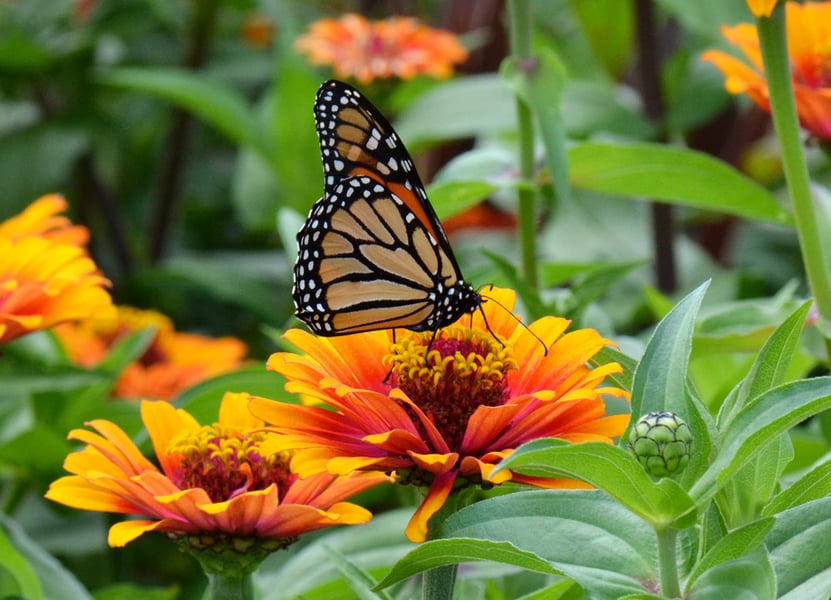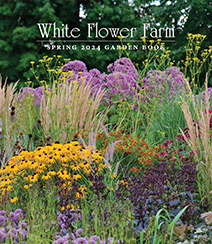Caring for Your Vegetable Plants
Our Nursery Manager shares some helpful tips on caring for edible plants to encourage plant health and maximum yields.
Grow Your Own Sun-Ripened Tomatoes
With so many varieties of Tomatoes available, it can be hard to decide which kinds to grow. We help narrow down the choices.
Asclepias tuberosa: Essential Monarch Food & a Whole Lot More
Not only does Milkweed sustain Monarchs and a wide variety of pollinators, it's a boldly beautiful bloomer and more.
Harvest Fresh Fruits & Vegetables From Pots on Your Patio
For gardeners with limited outdoor space, container pot gardening is a great way to go.
Attract Hummingbirds to Your Garden
Creating a hummingbird habitat is easy. Learn how to create a garden that attracts these beloved winged beauties.
How to Attract Butterflies to Your Garden
It is an easy and pleasurable task to create a garden with plants and flowers that attract butterflies.
Amending Your Soil to Maximize Tomato Harvest
A recent staff discussion focused on techniques for amending the soil prior to planting tomatoes. Learn what they discovered.
Honey Bees in America
The idea of keeping some hives to produce and sell both bees and honey became compelling and even seemed mildly rational—our CEO shares his thoughts and research.
Growing Strawberries (Fragaria)
We offer several types of Strawberry plants which yield delicious fruit. Basic care for each variety is quite similar; we explain particular requirements.
How to Grow Blueberries (Vaccinium)
Blueberry Bushes (Vaccinium) are easy to grow everywhere in the US and begin bearing fruit within two years. Learn how to start growing your own Blueberries.
Five Ways to Use Woodland Strawberries (Fraises des Bois)
Woodland Strawberries are about the smallest you will find. But don’t let their diminutive size fool you.
Sustainable Gardening

Home gardening—growing trees, shrubs, and plants—benefits the environment in many ways: Photosynthesis removes carbon dioxide from the air; garden beds collect and filter rainwater replenishing aquifers. Growing your own vegetables can reduce your carbon footprint, and certain garden plants attract and sustain pollinators critical for our food supply and the balance of nature.


